
Although the Black Death first struck during the seven years between 1346 and 1353, its effects would be felt for centuries after, particularly as outbreaks continued right up until the 18th century. The catastrophic loss of life with as much as 50 percent of the population being wiped out in certain regions - had a seismic effect across the globe, whether economically, socially, or religiously. The world would never be the same again. But what would the planet look like had the pandemic never happened?
To begin, Mark Bailey - professor of late medieval history at the University of East Anglia, and author of After the Black Death (Oxford University Press, 2021) explores the effect that such enormous population loss had on England. "The relentless population growth in pre-plague Britain had resulted in a perilously small size of landholding, a major rise in the proportion of landless and destitute, and a society highly sensitive to the slightest calamity, such as harvest failure. Economic growth had faltered because of a lack of effective demand and low living standards."
Had there been no pandemic, there would have been little impetus for this to change. However, the decimation of the working population created an enormous labour shortage, causing wages to rise and inequality to narrow. Without the Black Death, explains Professor Bailey, "England would have remained trapped in this desperate culde-sac of poverty, underemployment, and low productivity".
This story is from the July 2022 edition of History Revealed.
Start your 7-day Magzter GOLD free trial to access thousands of curated premium stories, and 9,000+ magazines and newspapers.
Already a subscriber ? Sign In
This story is from the July 2022 edition of History Revealed.
Start your 7-day Magzter GOLD free trial to access thousands of curated premium stories, and 9,000+ magazines and newspapers.
Already a subscriber? Sign In
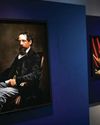
'Dickens's evocation of the fears, excitement and confusion of childhood is peerless'
DR LEE JACKSON ON WHY CHARLES DICKENS REMAINS RELEVANT TODAY
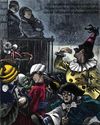
THE AUTHOR GOES ABROAD
Dickens expanded his horizons and boosted his fan-base by venturing overseas - but global fame came with a cost
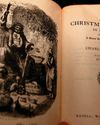
REVIVING THE FESTIVE SPIRIT
A Christmas Carol wasn't just a bestseller - it changed the way that Britons chose to mark the festive season
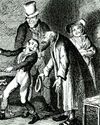
GIVING THE POOR A VOICE
From Hard Times to Oliver Twist, Charles Dickens used his pen to help illuminate the lives of the less fortunate

A JOURNEY THROUGH DICKENS'S LONDON
The works of Charles Dickens are synonymous with visions of Victorian London. We talk to Dr Lee Jackson about the author's love of the capital, and the locations that most inspired him
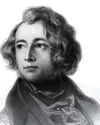
EXCEEDING EXPECTATIONS
Dr Lee Jackson chronicles Charles Dickens's journey from down-at-luck teenager to titan of Victorian literature

GIFTS, TREES & FEASTING
We take a journey through the photo archives to reveal how Christmas and its many traditions have been celebrated over the years - and around the world

WHAT GREAT PAINTINGS SAY
We explore the story behind an allegorical painting that celebrates the triumph of love over hate, peace over war
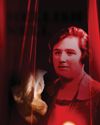
HELLISH NELL
Malcolm Gaskill delves into the life of Helen Duncan - the fraudulent Scottish medium whose ectoplasm-filled seances saw her ending up on the wrong side of the law

7 THINGS YOU (PROBABLY) DIDN'T KNOW ABOUT THE WHITE HOUSE
Presidential historian Dr Lindsay M Chervinsky reveals some of the most surprising facts about the world-famous US residence